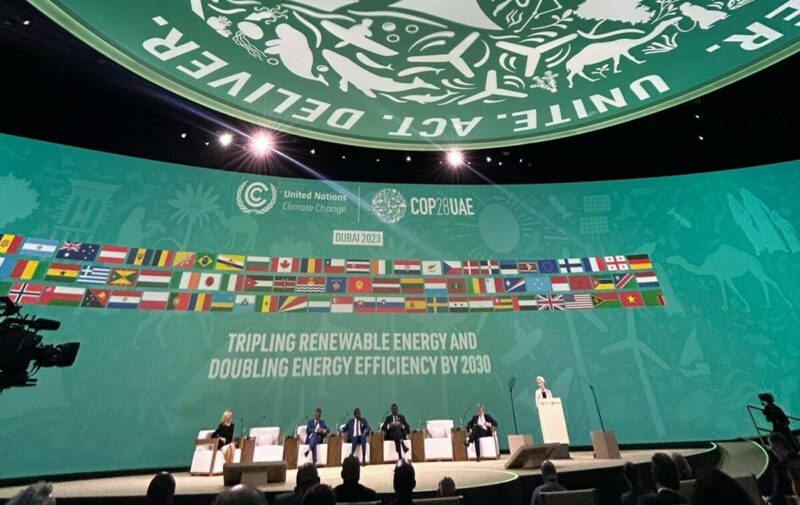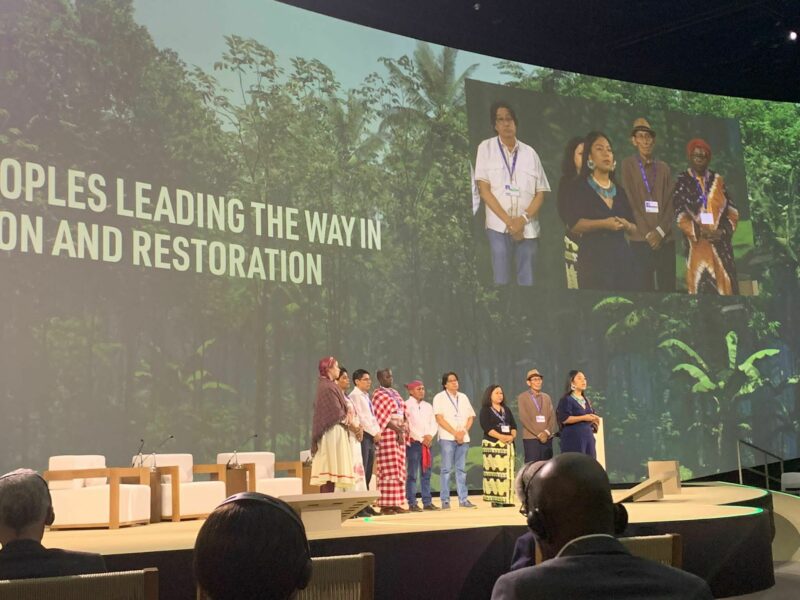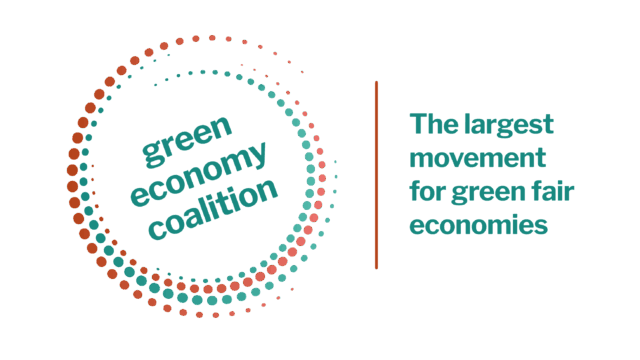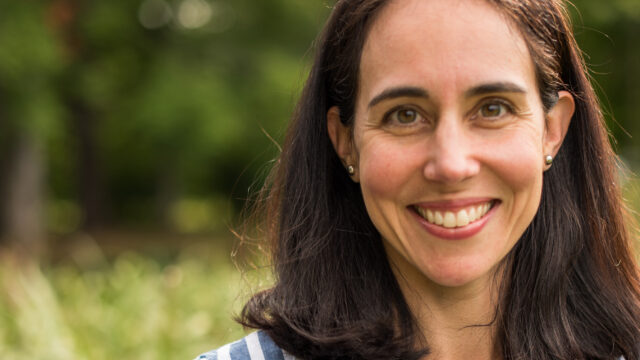COP28 is over, long live COP29!
Our Global Policy Director on the progress and challenges ahead after returning from the latest round of UN climate talks in Dubai.

Our Global Policy Director Sofía Martínez has just returned from the latest round of UN climate talks in Dubai, and shares her thoughts on the progress - and challenges - ahead.
Many have already provided excellent assessments and insights from COP28. As the year draws to a close, still recuperating from what has been my most challenging COP to date, I'd like to share a few simple personal reflections from my time in Dubai.
One cannot help but question the efficacy and relevance of the numerous declarations, announcements, pledges, commitments, initiatives, clubs, coalitions, alliances, taskforces, or platforms that have emerged. Truth be told, I lost track. Lost in this multitude, where are the efforts that can be monitored, evaluated, and reported upon effectively? The essence of meaningful change lies not in the grandeur of announcements, but rather in actions that reverberate through policy, practice, and accountability.
The good: Can’t stop sustainable energy (me) now
A successful first Global Stocktake (GST) together with the operationalization and capitalization of the Loss and Damage Fund stand out as the key outcomes of Dubai. The GST decision acknowledges the goal of limiting temperature rise to 1.5°C as the guiding star for action.
Mentioning the elephant in the room – ie: what to do about our global addiction to fossil fuels – has remained a taboo in climate negotiations. Of course, I would have preferred the inclusion of “phasing out fossil fuels” in the Decision. But already in September 2023 the International Energy Agency concluded that the pathway to limiting global warming to 1.5 °C remains open and it involves ramping up renewables, improving energy efficiency, cutting methane emissions and increasing electrification.
“ ...the inclusion of "transitional fuels" in the final text seems a misguided (and obscene) attempt to sustain profits through what is a bridge to nowhere, namely natural gas.”
These rapid changes in the energy sector are already happening, and not only because of growing climate concerns, but thanks to the increasingly strong economic case for clean energy, energy security imperatives, and the jobs and industrial opportunities inherent in the new energy economy.
The transformation must work for everyone, and the agreement on the Just Transition Work Programme, although somewhat weak, provides another reason for optimism. That said, the inclusion of "transitional fuels" in the final text seems to me a misguided (and obscene) attempt to sustain profits through what is a bridge to nowhere, namely natural gas.
The bad: Money is too tight to mention
Many have pointed out flaws and loopholes in the COP28 decision, so my job is done here. The reality is that more climate finance is needed, and more capital must go to the Loss and Damage Fund. One could even argue for the notion that all financial flows should be essentially climate finance, or at least do no harm, thereby aligning with the Paris Agreement.
We need increased funding for adaptation, but also for mitigation, ensuring that resources are directed to the most vulnerable, where the need is most acute, and fostering green and socially responsible initiatives. The cost of inaction is too high.
As attention will soon turn to COP29, discussions on the reform of financial architecture, the role of the private sector, debt and climate justice will take the center stage. Despite the aspirations laid out in the Nairobi Declaration, in my view COP28 fell short. Africa seeks fairness, not charity, through the removal of obstacles and prejudices.

Prioritizing adaptation and access to clean, affordable, and reliable sustainable energy, including clean cooking, remains crucial. Confronting the climate, biodiversity and inequality crises while simultaneously providing energy access and fostering fair, inclusive socio-economic development is the challenge at hand. The pertinent question arises: is the current system truly fit for purpose?
We can't afford the future to be the ugly
We must hope that the legacy of COP28 is not just the flurry of initiatives, acronyms and voluntary pledges, but instead the transformative actions that emerged, setting the stage for a sustainable and equitable future.
The simple reality – informed by the well-understood, and scientifically settled facts – is that we must phase out fossil fuels, regardless of the specific language agreed upon in endless negotiations. Momentum is building in slashing methane emissions, even without a set target. Essential sectors such as water, agriculture and food systems, health, ecosystems and biodiversity, infrastructure, poverty eradication, and cultural heritage will be collectively addressed with climate action, emphasizing adaptation and more.
The circular economy is recognized as key to climate action. The COP28 Decision highlights international cooperation as a critical enabler, underscoring the significant role played by non-party stakeholders. This includes civil society, businesses, financial institutions, cities, indigenous peoples, local communities, youth, and research institutions, all contributing to the cause.
“ With the climate crisis, nature crisis, and inequality crisis converging into a complex challenge, a polycrisis is unfolding. The system is not fit for purpose.”
As we step into the new year and prepare for COP29 in Azerbaijan, we in the Green Economy Coalition are dedicated to fostering a collective commitment that goes beyond rhetoric and embraces the urgency of our global challenges.
Beyond promoting a green economy, our mission, driven by our partners, extends to ensuring a transition that is fair, inclusive, and nature-positive. We work globally, connecting to other initiatives towards a global green and fair economy architecture. Crucially, we collaborate with our hub partners to ensure that actions are rooted in the needs and aspirations of individual countries and communities.
With the climate crisis, nature crisis, and inequality crisis converging into a complex challenge, a polycrisis is unfolding. The system is not fit for purpose. Our current system is insufficient and there is a pressing need for a reset, for renegotiated and new eco-social contracts. Please, join us in this transformative journey.
- Sofía Martínez, Global Policy Director, GEC


